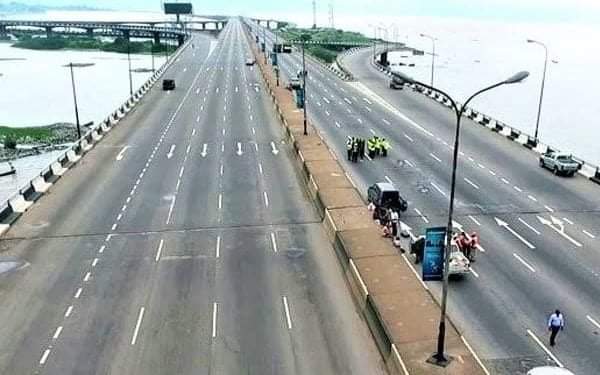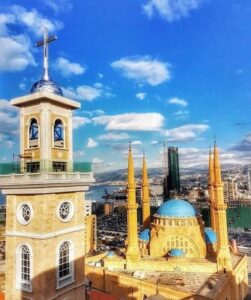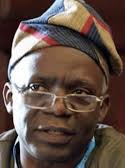
Life is gradually returning to the rail tracks leading from Lagos to Ibadan, the Oyo State capital. PAUL ADE-ADELEYE shares his experience
After much talk, some animosity and a burst of determination, the Lagos to Ibadan rail line finally kicked off activities low-key on December 7. Although its maiden trip was mocked for recording generally low patronage, the fault did not lie with the quality of service on offer; neither did it lie, contrary to popular opinion, with the fare of commuting. A return journey to and from Ibadan last week Wednesday, turned out to be exhilarating.
Everyone has said it, so it is no secret that none of the train stations on the 156km route is complete at the moment. The closest to completion is the Lagos terminal at Ebute Metta in Lagos Mainland. When completed, the terminal has been touted to match international standards. A cursory glance at the level of work ongoing at the station seems to point to the absence of any fib on the part of those who believe that the new terminal will be of high quality. Awaiting the comfort of the new terminal, however, Lagos District Manager of the Nigeria Railway Corporation (NRC), Jerry Oche, took it upon himself to ensure that travellers were well treated.
Inviting the first five travellers to arrive at the Lagos Station to the conference room of the old terminal last Wednesday, the manager fielded questions and even served drinks, apologising that the waiting area and ticketing booth were not ready. One traveller wondered aloud why there was little publicity concerning how the train would work, especially as most travellers simply had to grope their way through the procedure leading up to boarding the train. Mr Oche, an engineer, however, revealed that the absence of fanfare and advertorial that would serve as official publicity for the commencement of the train service was deliberate.
Officially, the train service has not been commissioned. This will be done by President Buhari sometime in January by which time it is hoped the project would have been completed. Meanwhile, the bit-part launching of the train service means that with current operations, the train can sit as many as 580 people. At the moment, especially since the station is not completely ready and there is no secure waiting area, it may be difficult to manage such a number. Oche is reluctant to kick-start operations at full capacity when the facilities to manage such numbers are not yet completely available. For now, he appears content to let the train service announce itself, a strategy that appears to be yielding dividends.
The district manager is additionally confident that this can be a successful strategy because the train service had conducted a free trial from Iju to Ibadan and only the COVID-19 pandemic stopped the service. When the trial started, they recorded low turnout but soon the numbers skyrocketed and maximum patronage was recorded at every journey.
Facilities
The reporter arrived at the train station with the intent of travelling humbly. Humility must be understood to mean economy class. However, when the booking clerk would ask what class of commuting the reporter wanted, a strange whim caused the reporter to opt for first class.
The first-class coach, which seats 24 passengers, costs N6,000; the business class coach, which seats 56 passengers, costs N5,000; while the economy coaches cost N3,000 for the 68-seater coach and N2, 000 for the 88-seater coach.
Luxury is an addictive spirit, so let it suffice to say that the return journey was first class also. Whatever the financial effects of this deluxe treatment of self, the devil may care but the reporter does not. To purchase a train ticket, the prospective commuter must present some form of identification – no doubt for security purposes.
Despite the incompleteness of the rail station, the manager was keen on security. He mandated that only travellers were to be on the ramp leading up to the train during boarding hours. There are also contracted security personnel belonging to several paramilitary bodies who embark on every train ride for the safety of the passengers. No staffer without business on the train was to be in the vicinity. At the entrance of the train, courteous staff (a welcome improvement in Nigeria) greeted the passengers, and the train not to be outdone, also breathed a cheeky draught of cold air. The trip, this implied, would be fully air-conditioned. The train was not complaining, the employees were not, and the passengers certainly were not. That consensus being reached, the reporter did not begrudge the train hostess leading him to the first class session – he paid for it anyway. There were sinks on the train, restrooms and a mini-bar from which nourishment was to be served for the pleasure of travellers.
Cross-checking this array of amenities with a contact in the United Kingdom confirmed that the regular metro trains do not offer this luxury. Only the long-distance trains, which operate between counties, do. While the economy and business class carriages looked comfortable enough, the reporter cannot say much for them, having only passed through. The first-class coach, however, was what it promised. The seats had trays, which could be summoned or neatly tucked away according to the traveller’s preference. The seats could also be rotated a full 360 degrees should the traveller not enjoy the sensation of being in reverse as the train rolls along. Trains, you see, hardly turn. There are engines at both ends, which propel the train depending on the train’s direction, and so the traveller is either travelling backward or forward.
At exactly 4 pm, the train departed the station. The passengers had been warned that the trip would last 2:41 hours. There are stations in Agege, Alagbado, Kajola, Abeokuta, Papalanto, Olodo, Omi Adio and finally Moniya, Ibadan, but for now, only the Abeokuta station is a stopping station. The stop was for only five minutes, and, as promised, at exactly 6:41, the train rolled into the Ibadan station. Similarly, the next morning, the train departed Ibadan by exactly 8 am and was in Ebute Metta at exactly 10:41 am. At maximum speed, the train is expected to eat up the distance at the rate of 150km/hr. The precision was encouraging for it meant a fellow could work his schedule around the train schedule. Mr Oche noted that when the train service became fully operational, it could make as many as 16 trips daily with a train departing and arriving every other hour. The journey could have been shorter, but people trading on the rail lines have forced the train to virtually crawl through Lagos, picking up speed from Alagbado station.
Verdict
For the current prices, the Lagos-Ibadan rail service is worth the expenditure. As noted by many analysts, the advantages floor whatever financial inconvenience the traveller may experience. For N2,500, the commuter who has chosen economy class will get more than double the comfort that a traveller by road would hope to enjoy in public transport. The traveller again enjoys additional guarantee that they will arrive at their destination in one piece and at a pre-arranged time. The business class traveller, for only N5,000, will enjoy more exclusivity and can make use of a laptop or other such device as may be reasonably sized for their work. It is presumed that the first-class passenger has called congress in his mind and deliberated on what premium can be placed on comfort and luxury in travelling. Honeymooners or those who do not like crowded spaces are advised to travel first class. It offers comforts that even luxurious private vehicles struggle to match.
The fear, as with many other things in Nigeria, is the maintenance culture. It was lack of proper maintenance and farsightedness that led to the decline of the railway system which the British bequeathed. The NRC must be careful not to rest on its oars but seek new and better ways to innovate rail travel, for only by so doing can the current pace be sustained and evenly matched. The District Manager predicts that by February, the stations will be completed. It is difficult to see how that is possible.
Ibadan by train: journey never more agreeable
By Adekunle Ade-Adeleye
Two days after the Nigerian Railway Corporation (NRC) restarted train services to Ibadan, this time on standard gauge and diesel engines and coaches built by China, the reporter took a return trip from Lagos last Wednesday. The first two days reportedly witnessed low patronage, with one passenger travelling to Ibadan on Monday, and five on Tuesday. The return trips on both days were also dispiriting, said NRC officials. Many reasons have been suggested for the scantiness of passenger traffic. Publicity was thought to be inadequate; the fare was believed to be unreasonably high; and who could tell how reliable the train ride would be, seeing how the Abuja-Kaduna trains were beginning to pack up in the bush, plagued by ticketing racketeering? But this welter of excuses was not enough to dissuade Wednesday’s exploratory return trip, especially for a reporter who regularly patronised train services in the 1970s from Kaduna, Kano and Zaria to Ilorin and Lagos. Train rides used to be hellish back in the day; how would it be now?
The Lagos to Ibadan train also held another special attraction. The Lagos-Ibadan Expressway had become a nightmare on at least four sections of the road: Berger, Long Bridge, Ogere, and Iwo Road. If the new train service could do the journey, as officials promised, in 2hrs 40min, why, that would be a revolution. On a bad day on the Lagos-Ibadan Expressway, a traveller could chalk up anything between five to 10 hours, with all the risks and attendant health implications. An uninterrupted journey of a little over two hours, with all the legroom, comfort, scenic beauty of a beguiling Nigerian countryside, would thus be the tonic for the rediscovery of the adventurous spirit and travel culture for which Nigeria was known and which this reporter prided himself in. Last Wednesday was not without its trepidations, for anything could go wrong, particularly being stranded in the hills and valleys that dot the route; but the reporter quickly overcame his fears and booked a seat. To him, nothing could be worse than the gridlock and flaring temper on the Lagos-Ibadan Expressway.
By the time the eight-coach, two-engine train rolled out from where it was watered to the uncompleted but very modern boarding platform of the Lagos Train Terminal, its form rising and glistening in the setting sun, and its nose shaped like a curved ballistic missile, whatever misgivings which plagued the reporter were dissipated. Building the Lagos-Ibadan section of the Nigerian railway system may have cost a tidy $1.5 billion, and the project delivery itself a little bit slower than anticipated, but the enthusiasm of the railway staff chaperoning not more than 10 passengers to their coaches and seats on that Wednesday evening was boundless and infectious. For years, the staff had wilted and ossified in a vacuum in which train services collapsed altogether or were reduced to only occasional intra-city train rides that spoke volumes about Nigeria’s mediocre achievements; now they were being sprung to life in an unexpected vivification that seems to hold far more sanguine expectations for the future than the country was ever used to.
Railway staff cautioned that the ride was not yet the return of full, modern services; but there was a semblance of what to expect: the ornate, gleaming interiors of the train coaches, the glittering exteriors and engine nose cones seemingly set to split an atom or break the sound barrier, the bedecked hostesses akin to airline crew, and the boarding announcements. Well, almost. The Chinese train drivers donned their nondescript and unassuming tee-shirts, cleaners chattered loudly and extravagantly as they mopped the floors of the coaches, in stark and embarrassing contrast to the modern facility they were tending, and the announcers struggled with their enunciations. But the full return of services or not, once the train departed Ebute-Metta, Yaba Terminal at 4 pm, it was business-like, the air conditioning in the full ambient blast, speed picking up gradually as it coursed through the dense urban jungle of Lagos. Once in the clear some 30 or 40 minutes later, near Kajola Station where coaches will be assembled in the future, the train began to glide, seemingly levitating, vibrations almost eliminated, at a speed that was only punctuated by bridges and stopping stations, and at a rate that kept the traveller animated and exhilarated.
Decades of enduring the nightmare the Lagos-Ibadan Expressway had dulled the aesthetic sense of a traveller to the gentle pleasures of adventures and travelling through the nation’s vast countryside. Last Wednesday, however, the reporter regained his eager élan as the train sped through the bushes and brushes, over bridges and rail crossings, unencumbered by the risks and gridlocks associated with road travel, not to say the general unpredictability of Customs, Road Safety, Police harassments and interruptions. The legroom in the first-class coach was extraordinary, and going to the lavatory as the train sped on was easy. There were only three passengers in the first-class coach, two men and a woman. All three exuberantly streamed their trips back to their families, remarked the revolution afoot in rail travel, basked in the euphoria of travelling unburdened by any anxieties, perhaps for the first time in decades, and fixed their gazes on Nigeria’s scenically and naturally manicured forests of the Southwest. The return trip from Ibadan early in the morning was even more dashing and spectacular.
There is some controversy that train tickets are overpriced and unreasonable. It is hard to understand the logic of the complainants. Perhaps they use the first-class ticket, which is N6,000, to extrapolate the expensiveness of the fare in general. However, there is also the economy class fare of N2,000 or less depending on the destination, which competes favourably with antiquated road transport fares. The NRC is, therefore, unlikely to heed the complaints. Patronage will pick up when the trains begin to operate full services; and at the existing ticket prices, with services not attenuated by age, misuse or poor maintenance, train travels are likely to become more popular and entrenched. It is unlikely too that debates about the expensiveness of rail modernisation, not to talk of the government’s bingeing on loans, will be assuaged by the popularity of the new trains with the public. But when the president finally commissions the project in January, as anticipated, and more than a dozen trips are scheduled daily, it may finally be possible for workers to live in one city and work in another. At that time, the cost of the project and the unreasonableness of the loans may pale into insignificance.
Standard gauge railway should have berthed in Nigeria decades ago, especially when the country was choking with petrodollars. But better late than never. Apprehensions that the completion of the Lagos-Ibadan Expressway will hurt the new train services may also be exaggerated. The problem with the Ibadan Expressway is not just one of resurfacing; it is also one of congestion, frequent accidents, and interferences by law enforcement agencies. These won’t stop anytime soon. Not only will ticket prices not be sufficient to underwrite the expenses of running the train services, thereby presenting a terrible dilemma to the NRC management, officials may be stupefied that their anticipated scheduling of more than a dozen train trips per day may also prove difficult to attain in the short to medium run. Overall, however, the new trains are safe, pleasant, reliable and certain to have positive spinoffs on estate development and the economies of Lagos, Abeokuta, Ibadan, and other stopping stations along the route.












